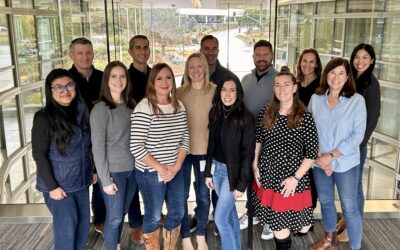Creating Positive Culture Change Through HR Leadership
At TiER1, many of our best insights are inspired by the partnerships we share with a wide variety of people – our clients, network connections, and trusted friends and community members. Lesley Evancho, Chief Human Resources Officer at EQT Corporation, is a trusted partner who has over 20 years of experience on the front lines of company culture change. Here, she shares what she’s learned about organizational success and the power of culture, as well as why the future of HR leadership is so exciting.
What do you love most about Human Resources leadership?
In HR leadership, you’re able to take a step back and see the “lightbulbs” turning on across an organization. Seeing people realize their potential, grow in their skills, or connect their passion and purpose to the mission of an organization – that’s what makes my job so rewarding. Those “lightbulb” moments are the result of a network of people and a series of events, but my position allows me the chance to take a step back and see how all of those things add up to create culture change.
What are the most important skills you would encourage leaders to lean into right now?
The most important skill I’ve cultivated is listening. And I mean really listen—not just taking notes and regurgitating it back in my own words, but seeking out perspectives with an open mind from my executives, team, board, and employees. Then, I try to make connections for them between personal values and company culture based on what I’ve heard.
Avoiding perfection is another key mindset. I’ve seen so many HR practitioners try to design programs that are perfect in nature. These programs have an abundance of structure around them for every “what-if” scenario, but they just aren’t reflective of real life. It’s better to take a few steps forward with a smaller program than to attempt a giant leap that is too complicated to adopt in practice.
In your role, you have a lot of plates spinning. What helps you navigate competing priorities?
I’ve found that I’ve had to decide what to care about. It’s just as important to make your not-to-do list as much as it is to make your to-do list. Just as you make decisions about what you are going to do, you can make decisions about what you’re not going to do in a day, a week, a year, or a lifetime.
Here’s an example. When my oldest child was about two, I decided to stop writing thank you notes on behalf of my kids. At first, this caused a stir, because I hadn’t communicated my decision to our extended family. When I went back and communicated with them, I made sure to explain not only my decision, but the reasoning behind it (that it wasn’t about a difference in respect or values, but about making time to accommodate for other priorities in my life—and that my children would be sending their own notes when they were old enough to write!). Being intentional with your priorities is so important, but when you do make a change, make sure to communicate it to the people it affects.
What’s most exciting about your current role at EQT?
I can get frustrated with the pace of change – I’ve always leaned toward wanting to modernize the workplace more rapidly than others. That’s what excites me about my current role. For the first time, I feel like I’m in an environment where the pace of change matches my desire for change. Modernizing our work is one of the priorities of our leadership team, and our fast pace is encouraging. I feel like I have an opportunity to make more of an impact than I have before.
How have you witnessed the impact of company culture on employees throughout your career?
Company culture is a big responsibility, and it’s a squishy thing to try to measure and articulate. As an HR leader, it’s important to be able to think ambiguously and to thrive in unstructured environments. You have to be able to think about multiple problems that could be connected and figure out how they work together to impact the organization at large.
I’ve also absolutely seen how the ugly side of company culture can hurt careers and livelihoods. As a leader, you have to stay vigilant about the dark sides of culture and shine a light on them—that allows you to have those tough but important conversations. You don’t want to inadvertently create bad conditions or experiences for someone.
When building company culture and HR policies, you have to consider employees in vastly different roles. How do you approach creating a system that works for everyone?
That’s definitely been a challenging part of my career. I’ve seen other HR leaders lean into writing really complicated policies that try to account for every exception under the sun. That can feel necessary when you have a global organization made up of employees with vastly different roles, backgrounds, and locations. You want to account for those differences in social and political contexts, and that’s one way to do it.
As a general value, though, I believe in trusting first and dealing with exceptions as they arise. Whenever possible, employees should feel empowered to make decisions for themselves based on their unique situation. Of course, those decisions must comply with the law, and must be fair to everyone. It’s a difficult balance to strike, because the easy route is to write 15 policies about time off depending on what part of the workforce you’re in, but that might not be the right answer.
What about the work you do “fills your bucket”?
The most rewarding part of HR leadership is seeing culture change last. I love hearing that programs or initiatives I’ve been involved in over the years are still affecting people’s lives. Whether it’s programs that have allowed employees to get another degree, learn something about their strengths in the workplace, or travel more—whatever it might be, it’s rewarding to know that my work played a part in the policy changes that led to that opportunity.
And—what are you hopeful for in the future of HR leadership?
I’m excited for the next generation of leadership to take on bigger roles and think about culture and values differently. They’re going to use a completely different lens to evaluate problems. Many concepts in the field are still evolving—how work is defined, how people find value and meaning in their work, even what the workplace looks like. I think it’s going to be an exciting time for change.
Lesley Evancho is the Chief Human Resources Officer at EQT Corporation. Learn more about Lesley at her LinkedIn page, and learn more about EQT at their website. If some of these ideas sparked an interest in rethinking company culture at your organization, we’d love to connect. Let us know the best way to reach you using the “Let’s Talk!” form below.




